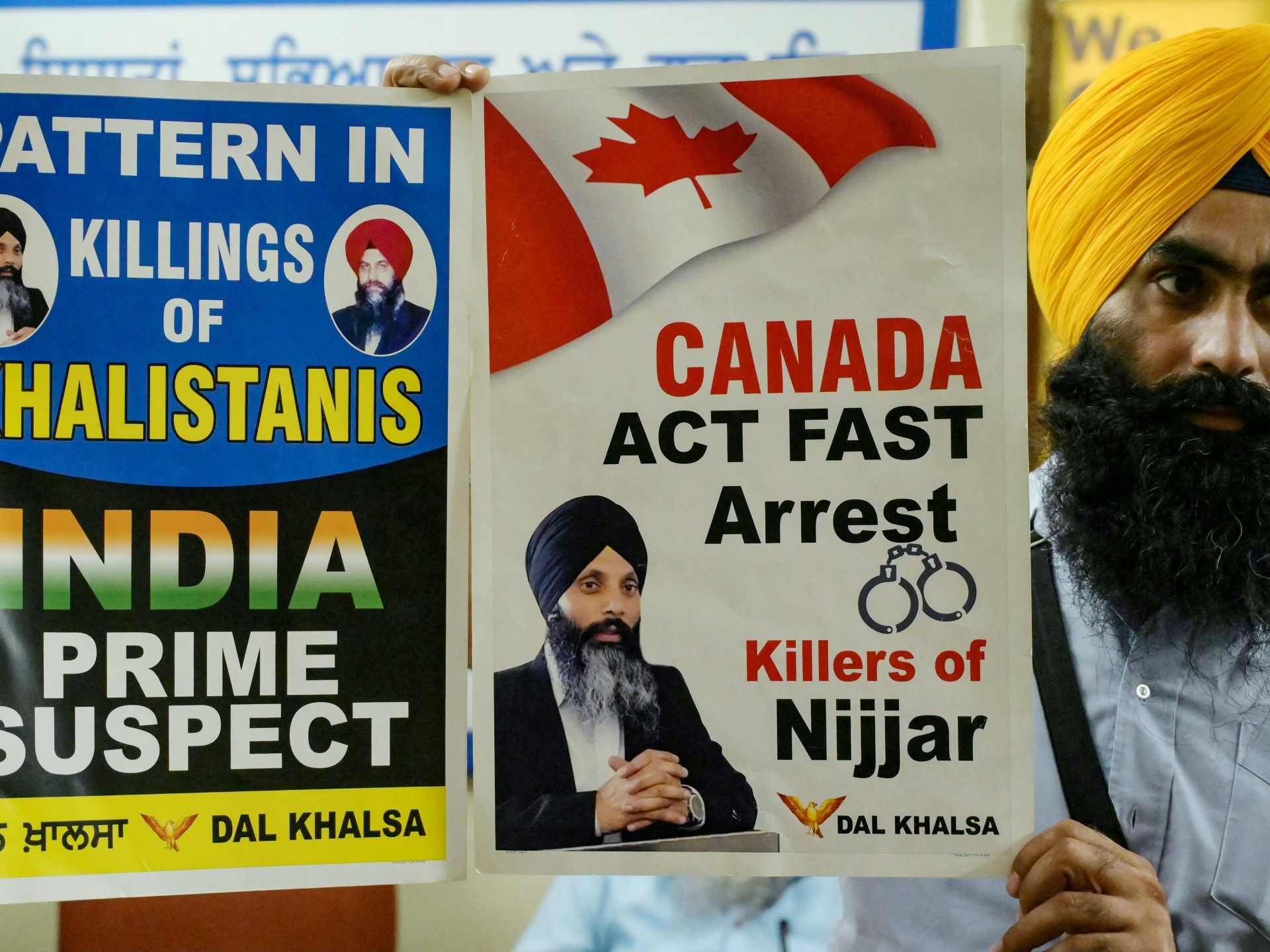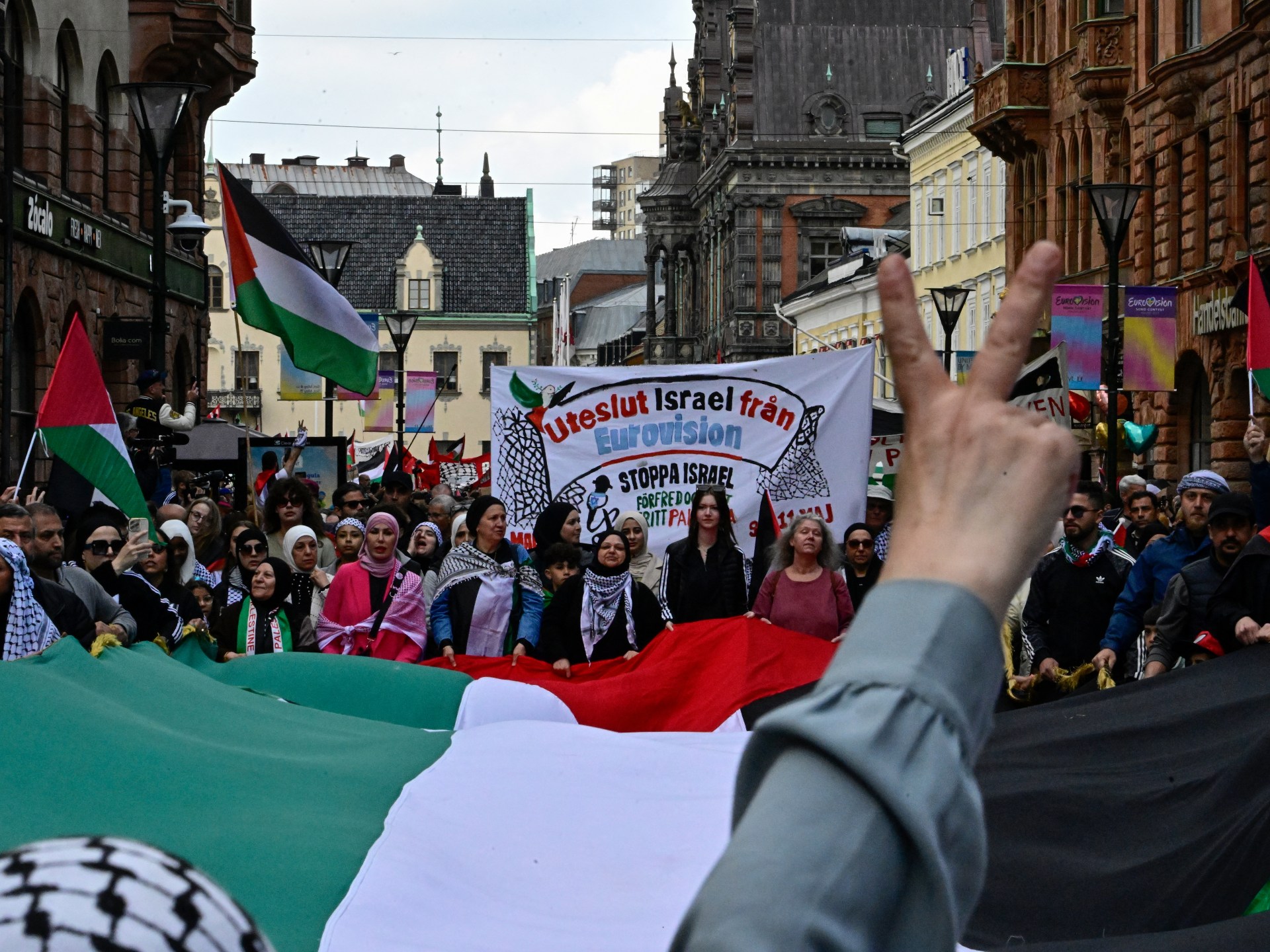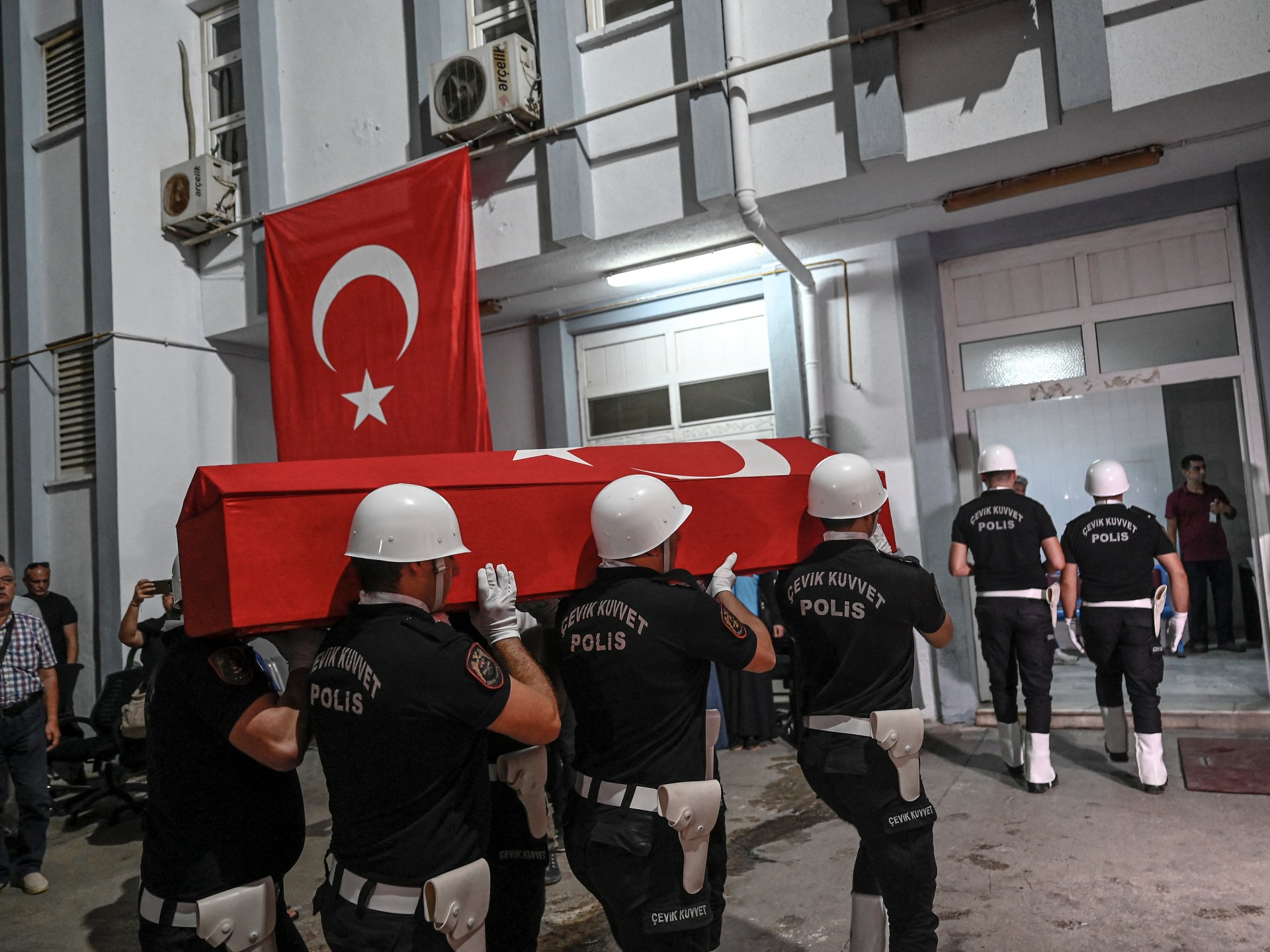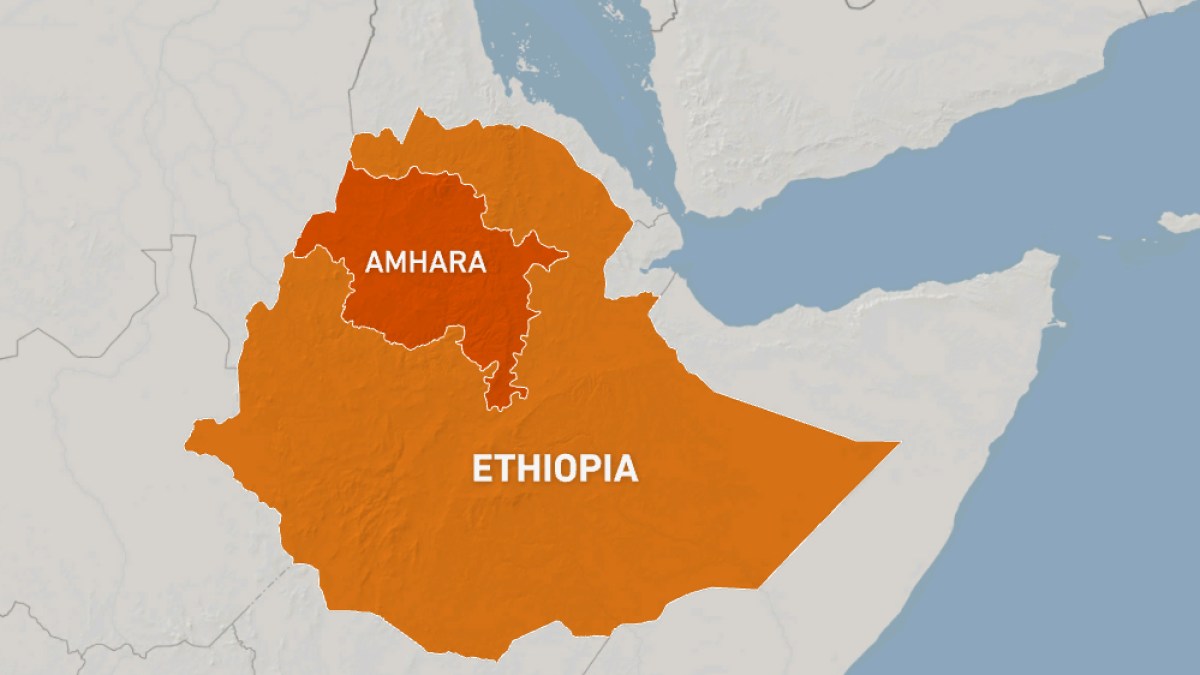A year after Sikh separatist leader Hardeep Singh Nijjar was murdered outside a community shrine near Vancouver, a series of diplomatic and legal moves are intensifying scrutiny over India's alleged role in quelling Sikh separatist movements in abroad through assassinations in both the United States and Canada.
In Canada, an upcoming hearing in the Nijjar case on June 25 will offer prosecutors a new opportunity to present evidence to support their allegations of Indian involvement in the murder.
Meanwhile, Nikhil Gupta, suspected of being involved in a plot to kill Sikh separatist Gurpatwant Singh Pannun, was extradited from the Czech Republic to the United States earlier this month.
Below you will find more information about what Canada and the United States are doing and what it means for India:
What is happening in Canada with the Nijjar case?
Four Indian nationals were arrested in May this year for the fatal Nijjar shooting in June last year. The four men are Amandeep Singh, 22; Kamalpreet Singh, 22 years old; Karan Brar, 22 years old; and Karanpreet Singh, 28.
Sikh activists marked the first anniversary of Nijjar's death by holding a mock trial of Indian Prime Minister Narendra Modi outside the Indian consulate in downtown Vancouver. They carried an effigy of Modi with prison stripes, affirming the Indian government's role in Nijjar's death.
Meanwhile, last week the Canadian Parliament honored Nijjar on the anniversary of his murder with a moment of silence, prompting an angry response from India. Nijjar, 45, was considered a terrorist by the Indian government three years before his death.
Sikhs in Canada continue to hold non-binding referendums on creating a Sikh nation separate from the Indian state of Punjab, with the next vote scheduled for July 28 in Calgary, the Canadian Broadcasting Corporation reported.
The four men accused of being involved in Nijjar's murder will appear at a court hearing on June 25 in the city of Surrey.
How has the Nijjar case strained relations between India and Canada?
Nijjar was shot dead outside a Sikh temple in Surrey, British Columbia, Canada, on June 18, 2023. Surrey has a large number of Sikhs, making up 2 percent of Canada's population.
Nijjar was associated with the Khalistan movement, an ethnoreligious movement that emerged among India's Sikhs, who make up 2 percent of India's population but nearly 60 percent of the population of the northern state of Punjab.
Khalistan is the proposed name for a Sikh nation envisioned by some Sikhs, incorporating the state of Punjab as well as other Punjabi-speaking areas of northern India.
While the movement fizzled out after a crescendo in India in the 1970s and early 1980s, due to repression by Indian forces and Hindu mobs, it has recently seen a resurgence among Sikhs in the diaspora.
In September 2023, Canadian Prime Minister Justin Trudeau said that Canada was investigating the possibility that the Indian government was involved in Nijjar's murder. India has rejected any involvement in Nijjar's death.
The incident tested the relationship between the two countries, as India withdrew its diplomats from Canada and briefly suspended visas for Canadians. Trade talks between the nations have been deeply frozen since Trudeau's explosive accusations.
Last week at the G7 conference in Italy, Modi and Trudeau shook hands, but it was unclear whether they discussed India's possible involvement in Nijjar's death.
Tensions are not likely to ease anytime soon, especially as hearings into the Nijjar case are expected to reveal more about Canada's allegations against India. Modi's government has repeatedly accused Trudeau of pandering to Sikh separatists in seeking their votes, ignoring India's national security concerns.
Those criticisms arose again last week, after the Canadian Parliament's show of respect toward Nijjar. “Once again we have said that Khalistani's activities are a matter of serious concern to us. We have repeatedly called on the government of Canada to take action. The political space given to anti-India extremist elements and those who advocate violence must stop and action must be taken,” said Indian Ministry of External Affairs spokesperson Randhir Jaiswal.
India claims Canada has yet to provide it with any clear evidence linking Nijjar's murder to Indian agents. New Delhi has suggested that a rivalry between criminal gangs in Canada could have been behind the murder.
What is happening in the United States?
But Canada is not the only country where the actions of Indian security agencies abroad are under scrutiny.
The Czech Republic has extradited Indian national Nikhil Gupta to the United States, where prosecutors have accused him of participating in a failed murder-for-hire plot to kill Sikh separatist Gurpatwant Singh Pannun.
Gupta, 53, who was arrested in June last year by Czech authorities while traveling from India to Prague, arrived in the United States on June 14.
As in the Nijjar case, the Indian government has tried to disassociate itself from the plot against Pannun. However, it has said it will formally investigate security concerns raised by Washington.
Last month, Washington said it was satisfied so far with steps taken by India to ensure accountability in the alleged plots, although it added that many steps still needed to be taken.
Gupta, who has been held at the Metropolitan Detention Center in Brooklyn, New York, since his arrival in the US, pleaded not guilty on June 17.
What was the Gurpatwant Singh Pannun case?
On November 29, 2023, the United States Department of Justice announced charges against Gupta, accusing him of working for the Indian government to carry out the planned murder of Pannun, who is a US citizen, in New York.
Federal prosecutors described Gupta as an associate of an Indian government agency employee identified only as “CC-1,” who previously worked with the Central Reserve Police Force, a major paramilitary force of the Indian government, according to the indictment.
The indictment alleged that CC-1 directed the assassination plot from India and recruited Gupta around May 2023 to coordinate it.
Gupta, acting on CC-1's instructions, contacted a person he believed was a criminal associate who could carry out the murder, the indictment alleges. But the person he contacted, unbeknownst to Gupta, was working confidentially for U.S. law enforcement.
This source, in turn, linked him to a “hitman” who was actually an undercover law enforcement agent working for the Drug Enforcement Administration (DEA), according to the indictment.
Gupta agreed to pay the hitman $100,000 for killing Pannun, paying him a cash advance of $15,000 in Manhattan around June 9, 2023, according to the US Department of Justice.
If convicted, Gupta could face up to 20 years in prison.
The DEA, as well as the Federal Bureau of Investigation (FBI), are investigating this case, according to a June 17 Department of Justice press release.
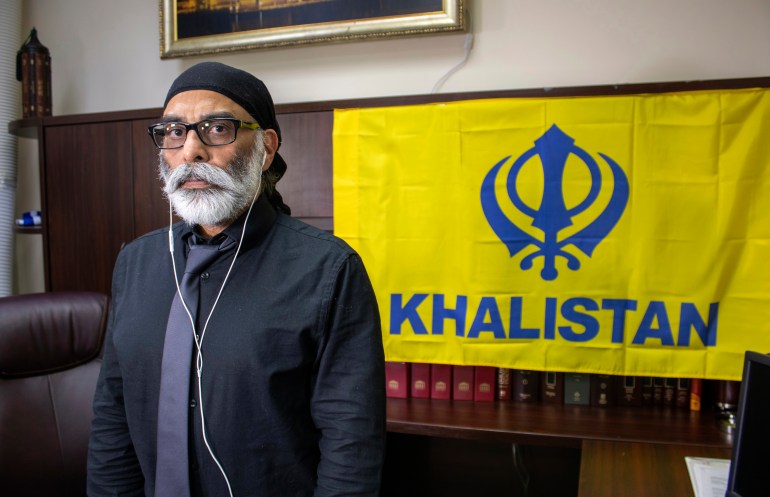
Are the tremors felt in other places?
The Australian Broadcasting Corporation (ABC) recently published an article accusing Indian agents of harassing and threatening members of the Sikh diaspora in Australia, and linking those cases to Nijjar's murder, as well as the alleged plot in the United States against Pannun.
The ABC previously reported on Australia's expulsion of an alleged Indian “spy nest”. Their report suggests that agents from the Australian Security Intelligence Organization (ASIO), the national intelligence agency, met with Sikh activists in Australia in relation to Nijjar's death.
The ABC has said that YouTube blocked some of its content in India ahead of the country's general election. YouTube said the ban was due to a “confidential” order under the Indian Information Technology Act of 2000.
Australian Prime Minister Anthony Albanese, who in May 2023 had feted Modi in Australia, comparing his popularity to that of the iconic singer Bruce Springsteen, nor his government have commented on the ABC reports.

